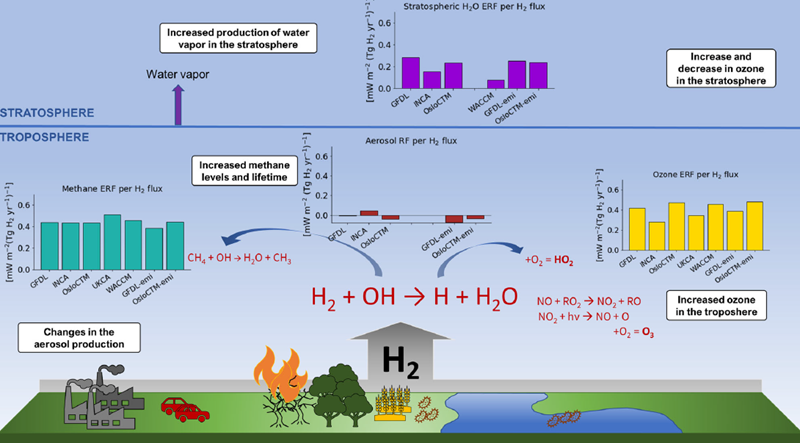An international team of researchers led by scientists from the International Center for Climate and Environmental Research (CICERO) in Oslo, Norway. It published a paper in the June 7 issue of the journal Communications Earth and Environment. The global warming impact of leaking hydrogen is almost 12 times greater than that of carbon dioxide. This is the most comprehensive assessment of hydrogen’s climate impact to date and fills a gap in knowledge.

Burning coal and gases containing CO2 produce different exhaust gases
Study leader and CICERO senior scientist Maria Sande pointed out that unlike burning coal and gases containing CO2, which produce exhaust gases. Burning hydrogen only emits water vapor and oxygen. Hydrogen is not a greenhouse gas. But its chemical reactions in the atmosphere affect greenhouse gases such as methane, ozone and stratospheric water vapor. Thus hydrogen leaking out during production, transportation and use contributes to global warming.

In the latest study, five different atmospheric chemistry models were used by Sander et al. They studied changes in atmospheric methane, ozone, and stratospheric water vapor. Given that hydrogen interacts with a variety of biogeochemical processes. Therefore, the new study encompasses soil uptake, photochemical production of hydrogen. The lifetimes of hydrogen and methane, and the interactions between hydrogen and methane. The results show that the global warming potential (GWP) of hydrogen is 11.6 – as usual, the GWP of CO2 is 1.
Sander noted that the effects of hydrogen on climate have been understudied and that this study. It is the most comprehensive assessment of hydrogen’s climate impact to date. Some previous papers based on single-model studies have also confirmed their latest estimates. The study clearly demonstrates the importance of reducing hydrogen leakage. Scientists are currently developing technologies to monitor and detect hydrogen leaks. Hydrogen is at the heart of the energy transition. And the potential benefits of moving to a hydrogen economy will depend on the extent of hydrogen leakage and the extent to which hydrogen can replace fossil fuels.